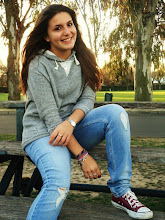Scriptwriter
There are many roles in making up a film. One of them is the scriptwriter/screenwriter. Its main job is to create or write the story of the film including each dialog and description of the scene.
For become a scriptwriter, first of all, you need to have the primary and secondary school ended because you need the basic to know how to write correctly and properly a story; also have to use only action and dialogue in your script. A screenplay is what can be seen and heard on the movie screen, written in the present tense, as if the action is happening now; have the kind of rhinoceros hide and iron backbone that won’t take “no” for an answer; an understanding to how to make the most of your creative talent; the ability to become exited about any subject on ten minutes of notice- or no notice at all. When you finish your script you have to read it again and again for checking if any mistake or if you consider you could improve something in it.
Being a screenwriter is a difficult job because you need to afford many problems, such as an immediate change of setting because he should be able to overcome and either redo his script, or adapt it to the new scene. Also if an actor changes its opinion about doing a certain scene, being flexible to change it so all the crew members are satisfied.
Scriptwriters, as all the other work partners, have a lot of responsibilities. One of them is to, if told to do it, finish the script before the dead line. Another one is being in the making of the film so as that in case of being an inconvenient with the script, such as the setting. And one of the most important responsibilities is to take full care of the script, this implies don’t lose it, don’t broke it, don’t ruined it, etc.
Another fact they have to take into account and be carefully is the work with others: it is very important the scriptwriter follows the DIRECTORS decisions, because after all, it is the brain of the whole film. Also, as we said before, it’s important for a scriptwriter to be flexible in his writing and change his script if any problem appears with an actor and accept other opinions and being open because it is always a good characteristic in a scriptwriter for having a good relationship with his partners.




















